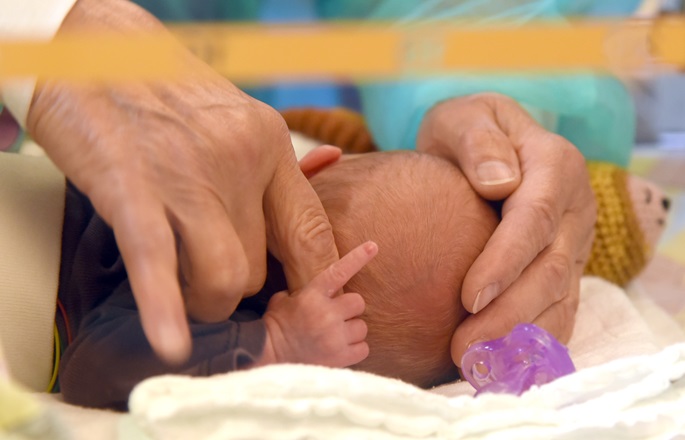More men than women in Germany, EU think children are a must
Published : 08 Nov 2024, 22:48
Nearly twice as many men as women in Germany think most people should have children, according to survey data published on Friday.
Of the men surveyed, 59% felt so while only 33% of women did, the representative questionnaire conducted by the pollsters Ipsos showed.
Across the European Union, the difference is slightly smaller, according to Ipsos data, with 53% of men agree and 39% of women agreeing that most people should have children.
The online survey polled 1,000 people in Germany, aged 16 to 74, between February 15 and April 23.
Female experts perceive a crucial reason for the difference is that women's lives tend to be more disrupted by having children than men's, where the essential pillars of their lives tend to remain more stable compared to most women, explained psychologist Mareile Poettering from Sonthofen in southern Bavaria.
Legitimate concern about careers
Women often invest a lot in education, jobs, and careers. "Consequently, they have a legitimate fear that their career might be impacted by having a child," said Poettering.
In fact, children often mean a different career path for women. Sometimes, mothers are placed in lower positions or even lose their jobs in the long run.
The challenge of balancing family and work is further compounded in Germany, since many firms do not offer family-friendly work models, she said.
For many women, it is important to earn their own money. On top of this comes the worry of not being able to afford to raise a family. "And such fears are justified," Poettering believes.
Financial worries
A larger apartment is often needed with a child, and these are currently as scarce as they are often unaffordable. Other costs are also steadily increasing.
Furthermore, young couples today often live far from their wider families and cannot rely on their support for childcare.
Childless women often express concerns about not being able to manage the "task of raising a child," especially seeing how young mothers in their circle of friends are often overwhelmed.
Women in the so-called middle class are particularly affected by multiple burdens, added Cologne psychologist Petra Jagow.
In the wealthy group, there are sufficient resources available for childcare. In the poorer group, certain burdens, such as job-related ones, often do not exist, and early motherhood remains more attractive to some young women than pursuing an education.
High expectations of life
Aside from resources, experts also identified expectations and aspirations for one’s life.
"In Germany, this is particularly challenging due to the surrounding conditions compared to neighbouring countries," said Jagow.
"No matter how a woman approaches it, she's doing it wrong."
She noted the term "Rabenmutter" which refers to a bad mother or one who does not take sufficient care of their offspring "only exists here" in Germany.
Overall, the picture emerges that women may want a child but are unwilling to pay the currently high price for it, Jagow said.
To change this, crucial conditions need to be improved, such as in childcare, work conditions, and pension schemes.


